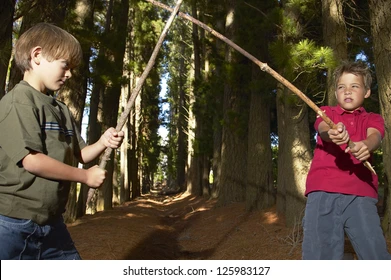Weapon play, such as using sticks as swords or making bows and arrows, is important in forest school for several reasons:
1. Risk Management & Safety Awareness
Children learn to assess risks, understand boundaries, and develop responsible behaviour around tools and play weapons.
They practice self-regulation, ensuring their actions are safe for themselves and others.
2. Physical Development
Weapon play improves gross motor skills (running, jumping, swinging) and fine motor skills (gripping, aiming, balancing).
It enhances coordination, strength, and agility through dynamic movements.
3. Creativity and Imagination
Engaging in fantasy battles or role-play encourages storytelling, problem-solving, and creative thinking.
It fosters imaginative play, which is crucial for cognitive development.
4. Social & Emotional Learning
Children practice negotiation, teamwork, and conflict resolution while playing with peers.
It helps with emotional expression, allowing children to explore themes of power, bravery, and justice in a controlled setting.
5. Connection to Nature & History
Making weapons from natural materials (like wooden swords or bows) fosters crafting skills and an appreciation for ancestral survival techniques.
It teaches resourcefulness and strengthens a connection to the natural world.
6. Building Confidence & Resilience
Engaging in slightly risky activities, like controlled sword fights, helps boost confidence.
Overcoming challenges and learning self-control builds resilience and emotional intelligence.
While some may view weapon play as controversial, when guided correctly, it becomes a valuable tool for learning and development in a safe, structured, and respectful way.

